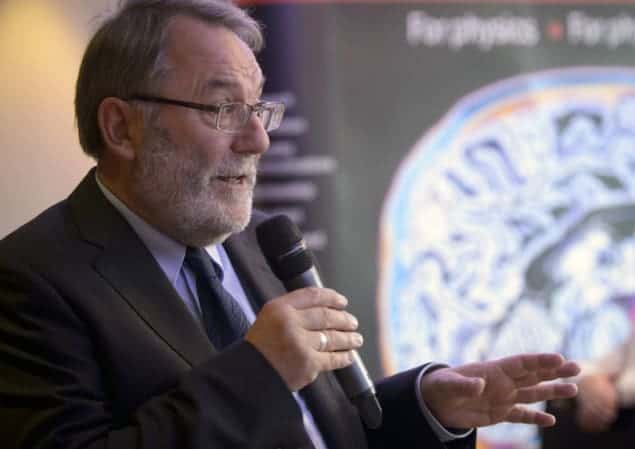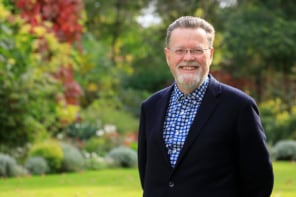
Further details have emerged of a new £270m initiative being funded by the UK government to convert quantum-physics research into commercial products. The five-year initiative, which will include the creation of a network of quantum-technology centres, was one of a number of measures revealed by the government in its Autumn Statement in early December 2013 to boost the UK’s science base. The Chancellor of the Exchequer George Osborne says that the money was “additional investment” in research and that science was a “personal priority” of his.
The initiative, which will begin in 2015, will focus on areas such as chip-scale atomic clocks for improved GPS communication, quantum-enabled sensors, quantum communication and quantum computing. Some cash will go to existing university research groups, while about £30m per year will go to the Technology Strategy Board – the UK’s national innovation agency – to support immediate commercialization of technology. There will also be money for PhD students and postdocs, while some £4m will go on equipment for the new Advanced Metrology Laboratory being built at the National Physical Laboratory.
Behind-the-scenes negotiations
The quantum-physics initiative, which has involved careful behind-the-scenes negotiations between the UK physics community, government and industry, was formally put to Osborne last year by a group of physicists led by Peter Knight of Imperial College London. Knight, who is the immediate past president of the Institute of Physics, which publishes Physics World, says that the prospect of an extra £270m for quantum technology is “highly exciting”. However, he adds that he will be “keeping a close eye” to ensure the cash is not simply siphoned off from budgets earmarked for other scientific fields.
The detailed mechanism for distributing the funding among UK researchers is still being discussed, although it is likely to involve the UK’s research councils, the Royal Society and the Royal Academy of Engineering. However, Jeremy O’Brien of the University of Bristol, who also helped to get the initiative off the ground, says the country must properly co-ordinate the new investment. “Fragmentation into small chunks will be the enemy of progress and ultimately could hinder the creation of wealth,” he says.
Real potential
But participants are optimistic about what the initiative can achieve. “There is real potential for long-term transformational change in some information-related technologies, deriving from a complete re-conception of design principles underpinning their operation,” says Ian Walmsley of the University of Oxford.
- You can read much more about how quantum technologies could change the world in this special issue of Physics World from March 2013



